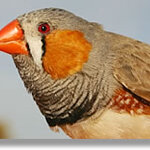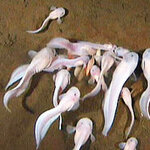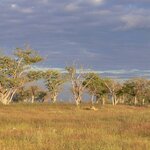
Newly exposed parts of Tiktaalik roseae--the intermediate fossil between fish and the first animals to walk out of water onto land 375 million years ago--are revealing how this major evolutionary event happened. A new study in Nature provides a detailed look at the internal head skeleton of Tiktaalik roseae and reveals a key intermediate step in the transformation of the skull that accompanied the shift to life on land by our distant ancestors.
A predator, up to nine feet long, with sharp teeth, a crocodile-like head and a flattened body, Tiktaalik's anatomy and way of life straddle the…






